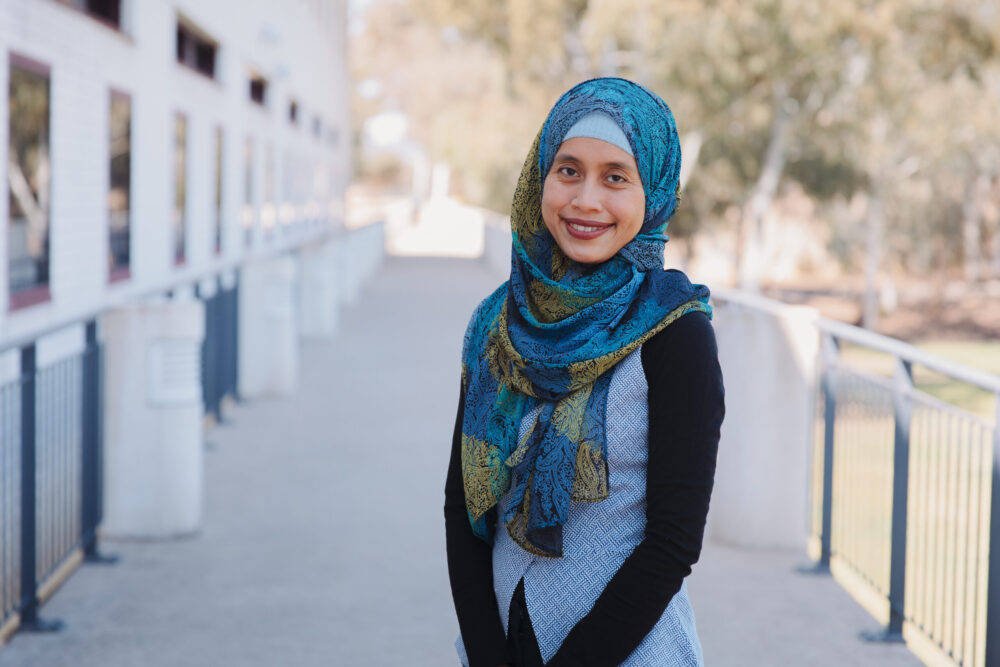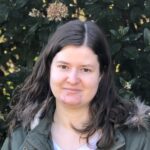Over summer, BroadAgenda is featuring a short series of profiles on amazing women and LGBTIQ + folks. You’re about to meet Professor Riyana (Mira) Miranti. She’s a socio-economist and development economist who is Convenor of the Indonesian Program at the University of Canberra’s Faculty of Business, Government and Law.
If you were sitting next to someone at a dinner party, how would you explain your work and research in a nutshell?
My work focuses on social equity, disadvantage and wellbeing.
What are you currently working on that’s making you excited or that has legs?
Teaching and doing research have always enticed me.
Teaching helps others to develop, learn and build a positive influence on future generations. All careers and knowledge begin with an education. Being a teacher also means that I always have the opportunity to learn which is a privilege.
I am currently working on a research project that analyses multidimensional disadvantage among children. Cumulative factors of disadvantage over time are associated with adverse outcomes in later life. So, it is essential to identify the protective factors from an early age. I’ve been working in this space for a while now.
Our previous work has been published here and here.
In addition, I’ve just recently published an article on women’s role during the COVID-19 pandemic, drawing lessons from the developing country of Indonesia.
Many women bear the triple burden of productive, reproductive and community roles, with the weight of the reproductive and productive burdens increasing in recent times owing to the impacts of the pandemic. Many of the sectors hardest hit by the pandemic are those where women are more likely to work (low-skilled or informal sector), and so many women had their hours of work reduced or were fired.
Unlike previous crises that tended to produce the added-worker effect (a short-term increase in the labour supply of women whose husbands have become unemployed), the Covid-19 pandemic may have produced both the discouraged-worker and added-worker effects. The data also show the pandemic has had heterogeneous effects on women, especially between highly skilled and less-skilled women.
Digitalisation brings new opportunities for female entrepreneurship, not necessarily for less-skilled women, and the divide between genders in both urban and rural areas still needs to be bridged.
Many households, particularly female-headed households, are at high risk of falling into poverty during such crises. The long-term impacts of the pandemic will also put women’s lifetime earnings and mental health at risk, something that is still considered taboo to be discussed in the case of developing countries. If the impacts of the pandemic are not addressed properly, gender inequality will worsen in the long run as existing structural social and economic inequalities deepen.
Let’s wind back the clock a bit. Why did you go into this field? What was compelling about it?
I am an economist, but I did not plan to be. My first degree was in accounting from Indonesia, and I wanted a postgraduate degree in finance. However, faith and scholarship opportunities brought me to learn and fall in love with economics, particularly regarding human capital and poverty. Then, when I graduated with my PhD at the ANU and decided to stay in Australia, my job search brought me to a former research centre at UC (NATSEM).
Coming from a developing country of Indonesia, I naively thought there was no poverty like in my first country. How wrong I was! Since then, I’ve been researching the issue of disadvantage in Australia. There are so many diversities and issues I can learn within this field. At the same time, I am also still researching Indonesian economic development. I am grateful that I have been developing expertise in both countries.
What impact do you hope your work has?
As a teacher/lecturer, I would be delighted to see if my students understand what I teach, graduate and contribute well to society. In research, our collaborators often provide positive feedback on how they use or cite my work as part of their practices, so hopefully, that means that my work has an impact.
Recently, I was promoted as a full Professor, having climbed the academic ladder from Level A to Level E in 16 years.
I was very touched when people came to me and said this had inspired others, mainly as I am a migrant Muslim woman. Hopefully, this also means that I have made some impacts, and I’ll use the Professorial position to give back to our communities better.
Do you view yourself as a feminist researcher? Why? Why not? What does the word mean to you in the context of your own values and also your work?
That is an interesting question. Within my ‘disadvantage’ research, I did research on gender differences in the labour market, the division of labour and the role of unpaid market labour in households. I am not sure whether those work define me as a feminist researcher. My work has always been broader than looking at gender issues. However, reflecting on these words, all of my work will always start with gender analysis. This shows the importance of intersectionality of gender research with other fields.
What have you discovered in your work that has most surprised or enchanted you?
I love collaboration and engagements. I love meeting people. Through work, I am grateful to have the opportunity to collaborate with many people from Australia and other countries. Many of my collaborators are long-term collaborators, which shows how important trust, respect and collegiality are to ensure the sustainability of our academic activities.
I am sure this also applies outside academia, we collaborate with other people all the time, even with our children!
Is there anything else you want to say?
Follow your passions, and do what you love. When you do what you love, you will likely feel motivated and that you’re learning and contributing in your chosen field. You will be happier and believed that your efforts matter. So, have courage to do what you love and always be kind.






